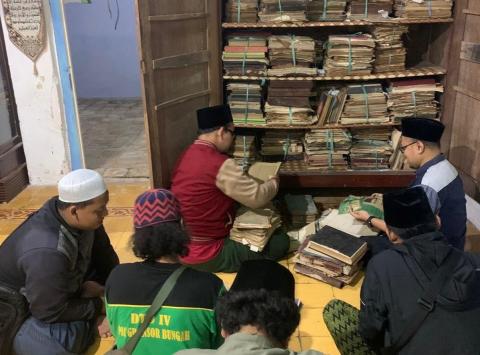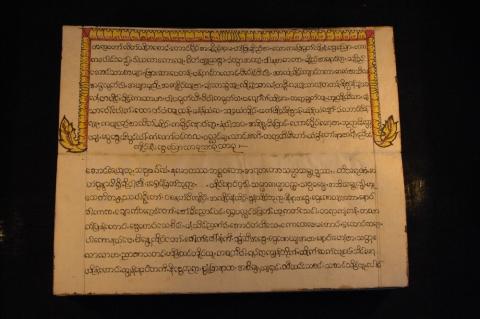
Aims and objectives
This project will preserve and make accessible to researchers the balance of a rare and vulnerable body of materials related to the history of East Timor (Timor-Leste), following the successful copying of a portion of this archive in 2007 under the previous project EAP032.
The materials that are the focus of this project comprise the complete records of the Statement Taking Team of CAVR (which includes written testimonies of the victims and witnesses of crimes against humanity committed during the Indonesian occupation of East Timor, 1975-1999) and related research interviews. Other material to be copied as part of the project will include Indonesian court records from the period in question, documents relating to the implementation of the CAVR process, and documents relating to CAVR's outreach program to refugees in Indonesian Timor.
The project has the full support of the Post-CAVR Technical Secretariat, the successor body to East Timor's Commission for Reception, Truth and Reconciliation (CAVR).
The principal objective of the project is to digitally copy the archive for security and access reasons. Having digital copies available to users will enhance protection of the original documents and increase access to the collection and its value. The original material will continue to be housed at the rehabilitated former colonial prison which served as the Timor-Leste truth commission base and is now managed by the Post-CAVR Technical Secretariat.
The materials comprise the primary source documents that formed the basis of the Timor-Leste truth commission report. They constitute the principal body of documented evidence in Timor-Leste regarding the decolonisation of Timor-Leste and related political, legal, historical, international and military questions. They are a rare resource in a largely oral, pre-industrial society where few written or other records exist or survived the destruction of 1999. The documents provide a unique insight into the functioning of a society under occupation and its survival strategies, and the role of international law and the international community. They are also a window on the New Order regime of Indonesia's recently deceased former President Soeharto and its powerful military. Should the crimes committed in Timor-Leste 1975-99 ever be the subject of international or other litigation, this archival material will also form an important part of the prosecution's case.
Potential threats to the material come from two principal factors: (a) climatic and (b) political.
The climatic threats include severe variation between the wet and dry seasons and related challenges of insects, dust, humidity and variations in temperature. Measures are being taken to offset these factors, including air-conditioning and attention to cleaning, but they still remain a significant challenge.
The potential political threats relate to the sensitive nature of the contents of the much of the archive. Though the precincts were stormed in 2006 and motorbikes stolen, no direct threat has been made to the material. However, the political and security situation in Dili remains fragile and volatile and the debate on the CAVR report scheduled to be held by the Timor-Leste National Parliament in 2008 will increase public awareness of the archive and its contents. For both these reasons, there is broad consensus in the benefits of copying the material and ensuring copies are also held in a safe off-shore depository.
The material represents a significant collection of documents about a vital period in Timor-Leste's history and, indirectly, about the role of the UN and international community in finalising one of the last outstanding processes of decolonisation. Much of the material comprises direct interviews with individuals who played significant roles during this 25 year period, politically, diplomatically, and militarily. They also form a valuable body of knowledge for the study, and the legal prosecution, of crimes against humanity.
Outcomes
This second phase of the digitisation project ran into a number of technical issues around the storage of the digital scans. Despite being unable to copy the full list of materials, the following have been scanned and listed:
- Primary and secondary Research documents
- CAVR establishment and operational documents (advice, legislation, meeting, planning, evaluation and reporting)
- Reparations
- Refugee activities
- Dili District Court records
- Exhibition materials
The materials copied in this project are housed in the archive of the Post CAVR Technical Secretariat, which is part of the Documentation Centre located in the compound of the ex-comarca, Balide, [the rehabilitated former colonial prison which served as the Timor-Leste Truth Commission’s base and is now managed by the Post-CAVR Technical Secretariat]. A process is underway to wind down the P-CAVR and replace it with a follow up “Institute of Memory”. These materials are currently available through direct application to the Director of the P-CAVR. A copy has been deposited with the British Library.
The records copied by this project have been catalogued as:




